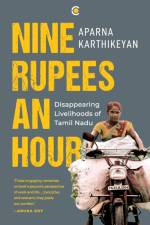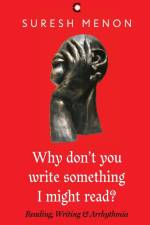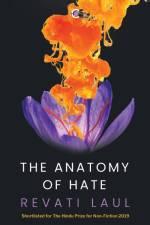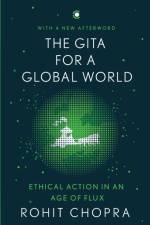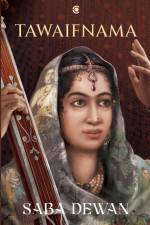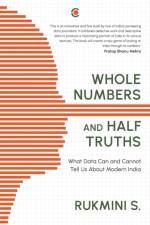von Rohit Chopra
21,00 €
COMBINING PHILOSOPHICAL UNDERSTANDING AND POLITICAL INSIGHT, ROHIT CHOPRA MAKES A STRONG CASE FOR THE RELEVANCE OF THE GITA IN THE MODERN, GLOBAL WORLD.The Gita in a Global World examines a very particular claim: can the ancient text that is the Gita offer a framework to negotiate the ethical challenges of capitalist modernity? We live in a world marked by greater existential precarity, and increased political and social turbulence and violence. Could the Gita, for all its philosophical abstraction, help us navigate this space? What can it tell us about global warming and violence, inequality and suffering, pandemics and the savage oppression of vulnerable groups? Rohit Chopra's masterful examination of the Gita interrogates the relevance of its ideas and sees in its articulation of the philosophy of universal being a more just and inclusive idea of human belonging.Combining philosophical discussion, meticulous research and sharp political insight, this book does what that ancient text has done for years-illuminate and provoke while asking each of us to choose how we will act to meet the challenges of the present and future.About the AuthorRohit Chopra is Professor of Communication at Santa Clara University. His research centres on global media and identity, digital media, and the relationship between media, memory and violence. He is the author of The Virtual Hindu Rashtra: Saffron Nationalism and New Media (HarperCollins, 2019) and Technology and Nationalism in India: Cultural Negotiations from Colonialism to Cyberspace (Cambria, 2008), and co-editor of Global Media, Culture, and Identity: Theory, Cases, and Approaches (Routledge, 2011). Rohit also writes extensively in a journalistic capacity on media, politics and culture in global contexts. An expert on the role of social media in fomenting sectarian violence, he works with non-profits, think tanks, and technology and media firms on developing strategies to combat the negative effects of social media. Rohit is also the co-founder and co-host of the India Explained podcast, a conversation on matters related to India (www.soundcloud.com/indiaexplained).

